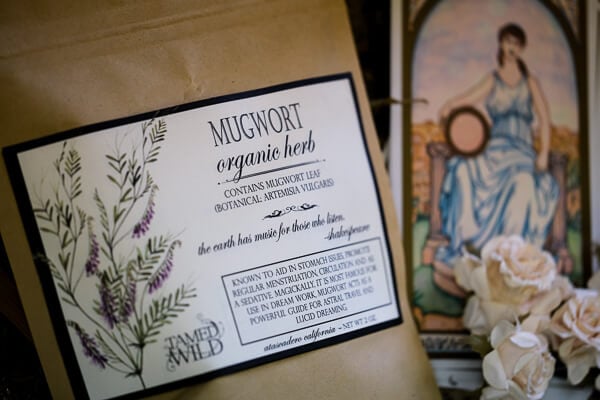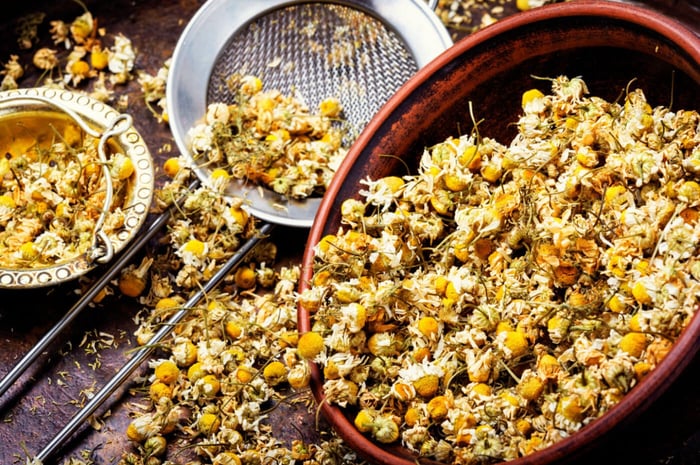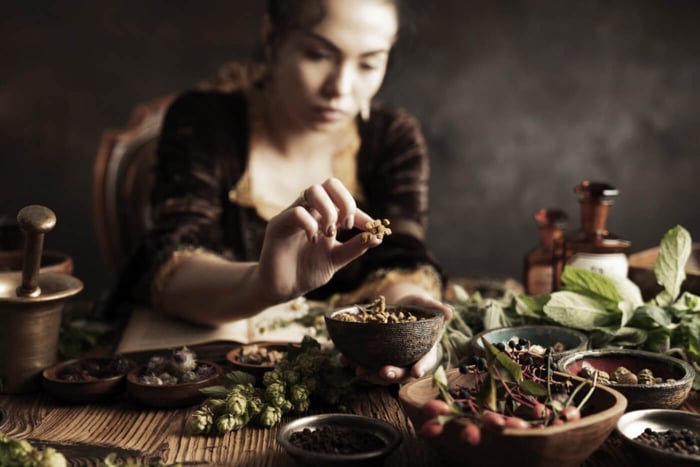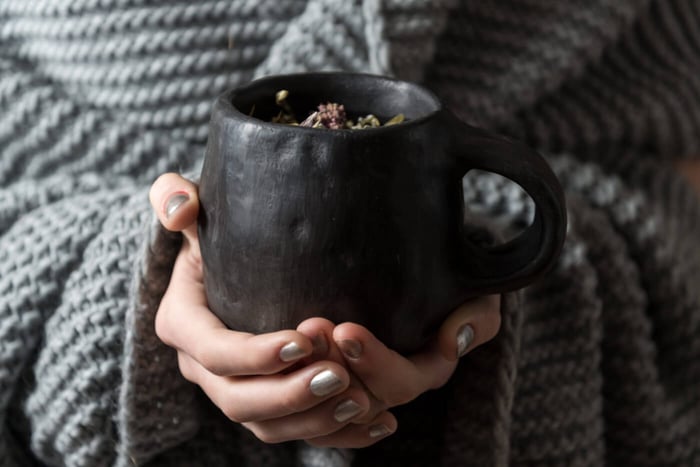Mugwort, or Artemisia vulgaris, is a member of the daisy family and is native to Asia and Europe. It’s a perennial that can reach up to three to five feet tall and has a woody root. It bears pinnate leaves that have dense fuzzy white hairs on the underside and often have a red-purplish tint. Its small florets produce dark red or yellow petals. Mugwort grows wild in many places and is abundantly found in ditches and rocky soils.
Commonly, the leaves and roots of Mugwort are used in tea, tinctures, poultice, essential oils, infusions, and smudging. It carries a hay-like, herbal smell reminiscent of dried Sage or Chrysanthemum when burnt and has a slightly bitter and sharp taste when used in tea.
Some sources say the name Mugwort relates to the word “mug” since it has been used for flavoring drinks since the early Iron Age. Today, hops, which are aromatic herbs, are used to make almost every kind of beer. However, before brewers in Britain and Europe discovered hops, Mugwort helped to keep the beer fresh and provided the crucial bitter note. Other people say the “mug” part of the plant’s name comes from its brewing history.
Magickal Lore
According to Healthline.com, in the past, Mugwort was revered by many. Roman soldiers put Mugwort in their sandals before marching off to war in order to ward off fatigue and tiredness. It was also thought to protect people from wild animals and evil spirits. Believed to have strong protection properties, woven crowns of Mugwort were donned at St. John’s Eve to protect against possession. Hanging a bundle of Mugwort near your front door is thought to prevent evil from entering.
An herb of the Goddess as Crone, Mugwort encourages wisdom and observation. When paired with a divinatory method of your choice, Mugwort is an excellent helper for confronting difficult inner truths. Linked to the third eye and crown chakras, it’s commonly used a visionary herb.
When taken before bed or placed under your pillow, it’s believed to awaken intuition and induce vivid or prophetic dreams. Sleeping on a pillow or sachet stuffed with Mugwort (that can also be combined with Jasmine, Rose and Lavender) is said to bring clear and memorable dreams. Many believe it can be used to stimulate lucid dreaming and visualization. If you hang it near your bed, it’s thought to aid in astral projection or astral travel. The effects of Mugwort are deemed more pronounced during sleep or trance-like states.
Healing Properties & Other Uses
Sometimes deemed the “woman’s herb,” it has been used to aid in menstruation and promote smooth childbirth. It’s also known as a nervine and is utilized in soothing anxiety and depression and is often said to be used as a sedative.
It appears in recipes for psychic teas and can be burnt over charcoal or made into divinatory incenses. Mugwort is frequently tied into individual bundles or added to sage bundles to make smudge sticks. In ritual, it’s burned as incense to aid in meditation or to cleanse a space. Mugwort may be prepared as an herbal tea to assist in divination and scrying. To prepare it, you would take a teaspoon of the dried leaves and steep them in one cup of hot water. You would then add honey and lemon or combine with other herbs, if desired.
Additionally, all parts of the plant contain essential oils with all-purpose insecticidal properties. This is why it’s often planted around one’s home and garden to repel moths and other insects, something it has been used for since ancient times.
In some practices, it is also said that Mugwort can be used to treat stomach issues and intestinal problems. It’s believed to help ease headaches, fever, nerve problems, insomnia, and nosebleeds. Some say it has antimicrobial and antifungal properties, but these claims remain unstudied.
** While we have provided suggestions on how to use Mugwort, please keep in mind results may vary per individual and always use caution when trying a new herb. Enjoy our Mugwort recommendations and folklore, and perhaps explore your own ways to incorporate it into your daily and magickal lives!
Tea Ball Strainer
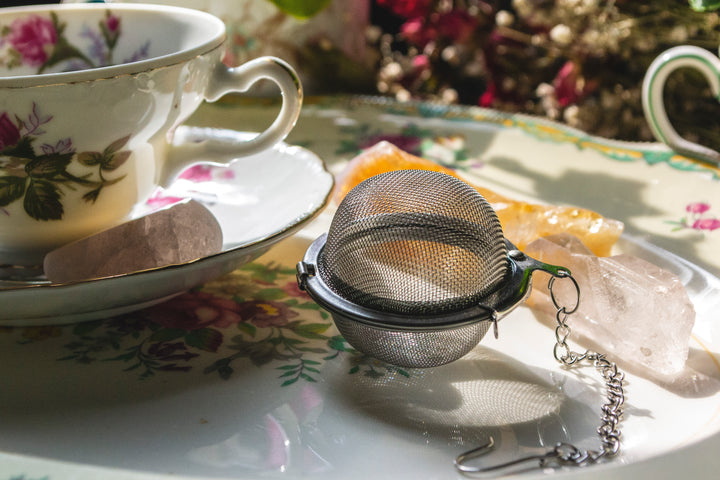
$ 8.00
Mesh tea ball perfect for pots, cups or baths using loose leaf herbal tea.… read more


